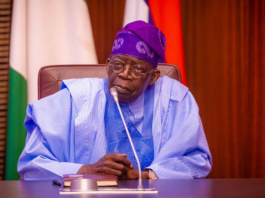Nigeria’s efforts to replace its paper money with newly created currency notes have led to a cash shortage, experts and business groups said, making it difficult for people to buy the things they need and forcing businesses to close all over the West African country.
According to the Central Bank of Nigeria, the redesigned 200 (43 U.S. cents), 500 ($1.08), and 1,000 naira ($2.17) notes, as well as new restrictions on large cash withdrawals, will help prevent money laundering and make digital payments the norm in the largest economy in Africa.
However, the process to replace the old currency notes is “rushed,” and commercial banks don’t have enough new money to give to customers, driving demand higher than supply, according to Ayokunle Olubunmi of Nigeria’s top ratings agency, Agusto and Co.
You can’t legislate a change in behavior, according to Olubunmi, because the central bank “doesn’t want us to be spending cash; they want us to be doing transactions electronically.” “You need to make sure those channels are trustworthy and get people to see the reasons.”
The government promotes a more inclusive, cashless economy and claims that the changes will spur economic expansion. Skeptics point to decades of widespread corruption by public officials, who are known to steal public funds and make life harder for those already struggling with poverty.
The central bank governor, Godwin Emefiele, stated over the weekend that 75% of the 3.2 trillion naira ($7.2 billion) in circulation in Nigeria as of October had been deposited with financial institutions.
He gave Nigerians until February 10th, an additional 10 days, to deposit their old banknotes.
InsiderBLM discovered that as of Monday, some financial institutions were still issuing the outdated notes to customers, even as more Nigerians were depositing their old currency in banks (Jan. 31). Customers of banks claim they can only withdraw a small amount of cash and pay expensive fees for each transaction.
Businesses are closing down
In Nigeria, bank-run digital payments are frequently unreliable, which causes businesses to struggle as an increasing number of customers are unable to find the cash to pay for goods and services. The situation has made it possible for people to sell the new banknotes illegally on a parallel market, according to the Nigerian secret police on Monday.
Chima Ekwueme, a car parts vendor in Abuja, the capital of Nigeria, said: “Someone might want to transfer funds to you, but it can’t be processed and they don’t have cash because of this issue. Sometimes I ask them to leave my goods behind so I can go look for money elsewhere.
According to Muda Yusuf, director of the Nigeria Center for Promotion of Private Enterprise, the cash supply crisis has disrupted such sales across the nation and forced a significant number of businesses to close.
Because they conduct many transactions in cash, particularly in rural areas, trade and commerce as well as agriculture have been severely impacted, according to Yusuf. “This policy has put a stop to their economic activity.”
According to him, the authorities should give more time so that the old notes can be gradually replaced by the new ones.
“The extremely low supply only makes things worse. Due to some people locking their shops, economic activity has practically been paralyzed “Yusuf tacked on.
Although experts contend that the currency changes are being made at the expense of the majority of Nigerians, Nigerian authorities claimed that the redesigned banknotes and new withdrawal limits would help reduce the use of money to influence the February 25 presidential election. Inflation is already 21.3%, which is a 37% increase in a year’s time.
The hardship for people is merely collateral damage for the political class, according to Tunde Ajileye, a partner at the Lagos-based SBM Intelligence firm. “All these things together are causing significant hardship in both rural and urban areas,” he added.Nigeria experiences a cash shortage as the country transitions to a cashless economy.







